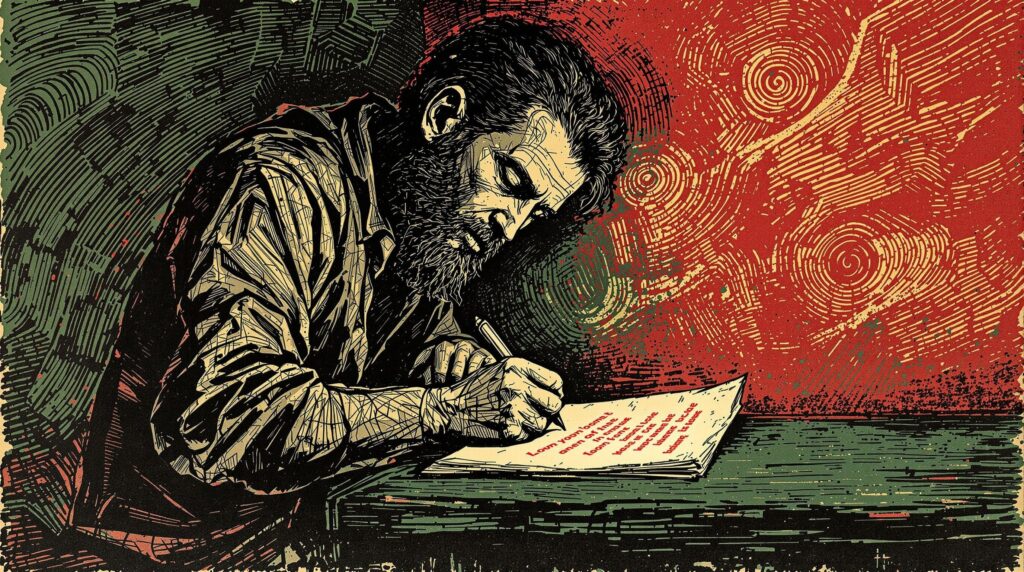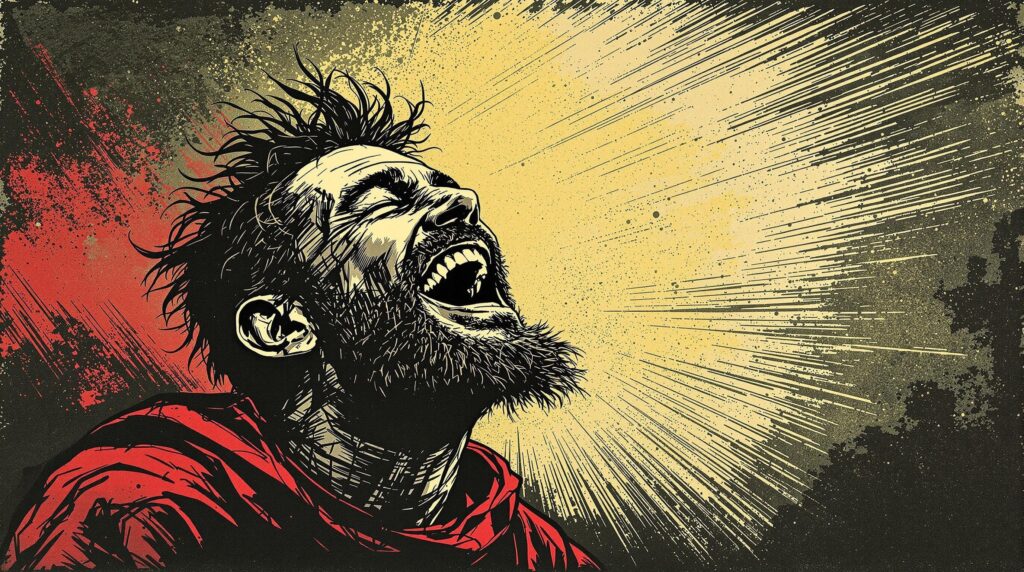In this chapter, Zarathustra delivers a series of aphoristic reflections on the nature of writing, reading, the spirit, and the qualities he values in humanity.
He begins by expressing a deep appreciation for writings composed with profound personal commitment, stating that he loves only what one writes “with blood.” He suggests that writing born from such intensity transforms into spirit itself. Emphasizing the difficulty of truly understanding another’s profound expressions (“foreign blood”), he expresses disdain for idle readers who consume without genuine engagement.

Of all that is written, I love only that which one writes with one’s own blood. Write with
blood, and you will discover that blood is spirit.
He criticizes writers who cater to readers, claiming that those who know the reader cease to produce meaningful work. Predicting a deterioration of intellectual depth, he remarks that widespread literacy will ultimately corrupt not just writing but thinking itself. He observes the degeneration of the spirit—from being divine, to human, and now descending to the level of the “rabble.”
Advocating for writing that is concise and potent, Zarathustra asserts that those who write in “blood and aphorisms” desire their words to be internalized rather than merely read. Using the metaphor of mountainous peaks, he conveys that the path from one lofty idea to another requires significant effort (“long legs”) and that aphorisms serve as these intellectual summits, intended for great and elevated minds.
Zarathustra describes an ideal environment characterized by thin, pure air, imminent danger, and a spirit filled with joyful mischief—all elements that he believes are conducive to wisdom. He expresses a desire to be surrounded by “goblins,” symbolizing lively and daring companions, as his courage dispels fear and conjures playful challenges; courage, he notes, seeks laughter.

I want to have goblins around me, for I am courageous. Courage that frightens spectres
away creates goblins for itself courage wants to laugh.
He distances himself from others, viewing the “cloud” beneath him—symbolizing their heaviness and seriousness—with amusement. While others look upward in aspiration, he looks downward from his elevated state. He questions who among them can combine elevation with the ability to laugh, suggesting that true enlightenment encompasses both.
Zarathustra posits that those who ascend to the highest heights can laugh in the face of all tragedies. He portrays wisdom as desiring individuals who are brave, carefree, mocking, and forceful—likening wisdom to a woman who loves a warrior. Addressing complaints about life’s burdens, he admonishes others not to be overly delicate, reminding them of the capacity of humans to bear weight like “sturdy donkeys”.
Declaring that he would only believe in a god who can dance, Zarathustra associates divinity with joy and movement. Encountering his “devil,” he identifies it as the “spirit of heaviness”—a solemn force causing all things to fall. He advocates overcoming this oppressive spirit not through anger but through laughter, urging his listeners to “kill the spirit of heaviness.”
